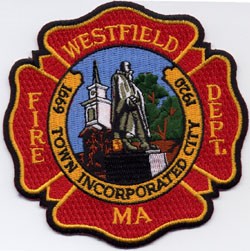By Tina Gorman, Executive Director Westfield Council On Aging
Unattended cooking is the most frequent cause of fires in the home. State Fire Marshal Peter Ostroskey encourages older adults to use caution in the kitchen. His statewide cooking safety campaign urges seniors to “stand by your pan” and “put a lid on it.” Older adults should be careful not to leave food, grease, or oils cooking on a stovetop unattended. Wear short or tight fitting sleeves when cooking. Loose fitting clothing can easily catch fire. Keep pot handles turned inward to prevent accidental spills of hot contents. A three-foot “child-free zone” should be maintained around the stove. Grandchildren and pets should be kept away from the stove while cooking to prevent burns and scalds. Remember that stoves and ovens are for cooking and baking, not storage. Combustible objects such as potholders, towels, paper or plastic bags should be kept away from heating elements.
Covering a pan fire with a lid and turning off the heat source is the safest way to put out the fire. Throwing water or using a fire extinguisher on a grease fire will only spread the fire. In addition, the force of the extinguisher can splash flaming grease out of the pan. Baking soda will also help to put out a grease fire. Burning pans should be left on the stove and not moved. A person can be badly burned and the fire will spread if a burning pot or pan is moved. For fires inside an oven or microwave, the door should be kept closed, the appliance turned off, and the fire department called.
Metal objects should never be placed in a microwave. Utensils, aluminum foil, or twist-tie wraps can arc and cause a fire. Microwaved foods and liquids can become very hot. Therefore, caution should be exercised to avoid scalding.
To avoid electrical fires, appliances such as toasters and coffee makers should be unplugged when not in use. It is important not to overload outlets and power strips. One appliance should be used per outlet, especially if it is a heat-generating appliance. Electrical cords should not be run under rugs or be pinched by furniture. Extension cords should be used temporarily. They are not designed for long-term or permanent use. Electrical appliances and cords should be kept away from water. Call a professional electrician if you have frequently blown fuses or tripped circuit breakers; dim or flicking lights; overheated plugs, cords or switches; loose plugs; or unusually warm or faulty outlets or switches.
Natural gas and fuel oil are efficient home heating options. However, precautions should be taken to assure that everyone in the home remains safe. If you heat with gas, have your furnace and water heater professionally checked each year. Do not use or store gasoline or painting supplies inside where they can be ignited by the pilot light. Gas leaks can be dangerous. If you smell something like rotten eggs or you think there might be a leak, move outdoors, do not smoke or turn on or off electrical switches, and dial 9-1-1 immediately. Oil furnaces should be professionally serviced every year. The tank should remain above one-quarter full. If the oil burner releases smoke or soot in the house, call for service.
Fires caused by space heaters can be deadly. Space heaters should not be used as the primary source of heating a house or apartment. Such heaters need at least three feet of space from anything that can burn. Only heavy-duty extension cords should be used. Finally and very importantly, space heaters should be turned off before going to bed or leaving the home.
Carbon monoxide is often referred to as the “silent killer.” Heating equipment is the leading source of carbon monoxide in the home. It is important to have carbon monoxide detectors on every level of your home. Gas stoves and ovens should never be used as a source of heat. Appliance vents and exhaust pipes should be kept clear of drifting snow and bushes.
Remember that many household items can catch fire easily. Common flammable materials include curtains, rugs, clothing, furniture, magazines, papers, and bedding. Keep items that can catch fire three feet away from space heaters, fireplaces, stoves, and furnaces.
The majority of victims injured in fires are hurt while attempting to fight the fire. Leave the firefighting to trained professionals. In the event of a fire, leave the building quickly and call 9-1-1. All fires, regardless of size, should be reported to the Westfield Fire Department.





